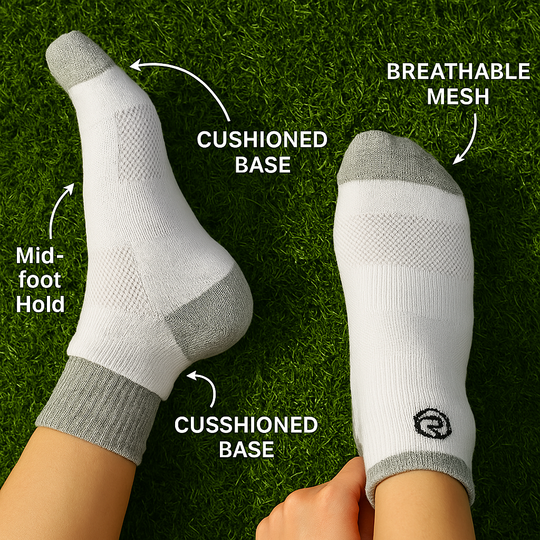Fitness You Lose After Periods of Not Running? How Long Does It Take to Gain it Back?
Date
Duration
2 min read


The worry that if you miss one run, you'll suddenly lose all your hard-earned mileage and will never be able to run again, is something all runners struggle with. But irrational fears aside, how long does it really take to lose running fitness? TrueRevo puts together everything you need to know about running fitness and how to maintain it, if you're taking a break.
First, it's important to understand there are two "types" of fitness: (1) Your Aerobic Fitness—in other words, your endurance—and (2) Your Orthopedic or Structural Fitness—the ability of your muscles, bones, tendons and ligaments to withstand the impact of running.
Both are important, but both lose fitness at different rates.
- Structural Fitness: Structural fitness is critical for injury prevention. It helps you absorb the impact of running without suffering an overuse injury.
This area hasn't been studied as well, but it does take longer to gain structural fitness as opposed to endurance.
This means that for any period of inactivity, your body's ability to tolerate running declines more quickly than its ability to run. This puts you in the injury danger zone. Any runner will recognize the euphoric feeling you get after five to seven days off from running. You go for your first run and feel great. After all, you've rested for about a week. You may even be running a little faster than usual because it feels better than your usual, slower pace.
But after a week of faster running and feeling good, aches and pains pop up. You may even experience an injury because your structural fitness is much lower than your aerobic fitness.
- Aerobic Fitness: Aerobic (or cardiovascular) fitness is one of the most important components of overall physical fitness. It takes a little while to lose your hard-earned endurance.
For most runners, it takes about seven to 14 days for your aerobic fitness to start declining. And what you lose initially is mostly the gains that you've made in the last several months of training. The better shape you're in, the more fitness you'll hold onto when you're not running. If you run consistently and have a higher level of fitness than a beginner, you don't have to worry about losing your gains as much as if you were just starting out. Conclusion is to run as consistently as possible. Running is truly a long-term endeavor—a lifestyle rather than simply a sport—and your aerobic fitness is something you hold onto for many months.
Prevent Fitness Loss During Time Off Running:
During any course of inactivity, a small amount of strength work can help you keep your body's ability to withstand running. A short gym workout or a series of medicine ball exercises can often mean the difference between staying healthy and taking even more time off because of a running injury. Once you understand that your endurance is lost slower than your structural strength, you can modify your training to run more consistently. And the more subsist you run, the more fitness you'll have. If you can keep up the mini routines while you’re on a break, you’ll be in much better shape once you come back to the gym. That way you won’t waste the hard earned fitness that you’re building now.






